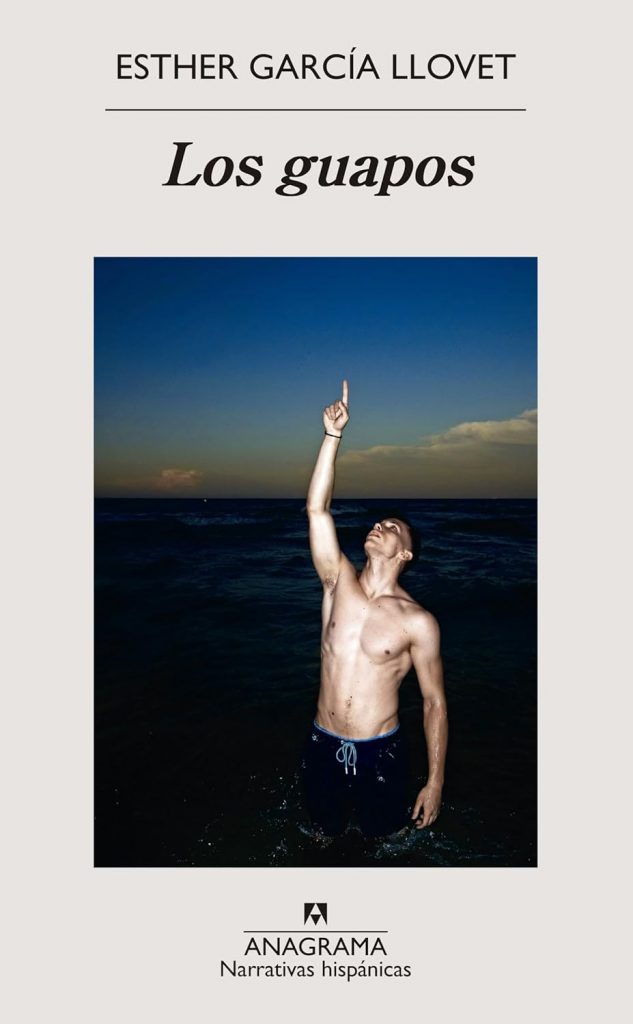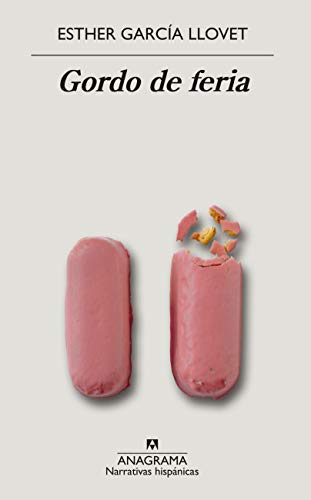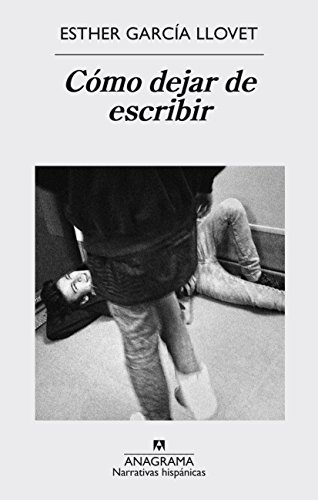Satire can be the most acidic form of humor. A lysergic vision that awakens a humor that overcomes the tragedy of false morals, of human duplicity. When a ruthlessly satirical vision assaults the social, appearances and formulas fly into the air to perpetuate themselves in the void of their usual euphemisms and formalisms.
A satirical constant that Esther Garcia Llovet brings his work as his particular glue black gender that reconverts to pleasure. A taste for noir where criminals, victims, murder weapons, investigators and alibis are all pushed by an unstoppable centrifugal force. An energy that turns everything upside down to relocate the scenes and characters at the whim of an imagination that enjoys being confused.
Defragmented situations as in new cuisuine but they like to serve themselves "with good" the absurdity of Inclán. The invention works on a good basis because the ingredients are nevertheless presented with painstaking precision between the surreal, the metaphorical and the synthesis erected as a ruthless portrait that ends up being more true than those other distant events that hardly call our attention anymore in the media. And it is that literature magnetized towards the extraordinary carries more realism than all the lukewarmness that passes to this other side.
Top 3 novels by Esther García Llovet
The handsome ones
Mel Gibson and its traditional version signs. Evocations of those 80s when we all waited for UFOs. Starting point to awaken those strange sensations from which to reconfigure the world with a surprising narrative. A point of melancholy with other recent times in which everything seemed more natural and free...
In the rice fields in front of a campsite in El Saler, some mysterious circles appear. It is what fans of the occult and extraterrestrials call crop circles: large geometric shapes that emerge from one day to the next in a planted field.
Are there UFOs in the area? Or is the campsite owner looking for a tourist attraction? Adrián Sureda travels there, posing as a journalist, although in reality he is not and his appearance is due to other reasons.
He begins to investigate among the locals: the owner of the campsite, the campsite cat, the campsite guard who in her free time has a program of esoteric mysteries on a local channel, an Italian who landed in the eighties and runs a kiosk... And Strange, very strange things begin to happen.
An episode of The Twilight Zone set on the touristy Valencian coast? A traditional Twin Peaks? One of Stephen King in the Albufera? Some Close Encounters of the Third Kind with guys as extras? Welcome to the territory of Esther García Llovet: gas stations with old Mirinda signs, Montesa motorcycles, Nino Bravo at full speed, a cruising area in a forest, the clothesline where the local Hare Krishnas dry their clothes, ghosts without nails... Are you visiting us? the aliens? Maybe the answer is in this novel (or not).
spanish beauty
It was like an obvious temptation to come up with the title "Spanish Beauty." It took too long to get someone with him after enjoying that wonderful movie "American Beauty." It had to be Esther García Llovet who adjusted the strange enjoyment of tearing apart the social ideal made in the USA. Transmuting narrative genre parameters to the most Iberian imaginary and idiosyncrasy seasoned all with the alienating east wind. That was the crux of the matter, only this author could do it. Or rather redo it completely ...
Sspanish beauty, the first installment of the Trilogy of the Eastern Countries, offers us a Benidorm full of English gangsters, Russian millionaires, crappy basement billiards and half-built skyscrapers: a city in which Michela is in command, the corrupt police who need at all costs to recover a lighter that belonged to the legendary Kray Twins of the London in the sixties.
Cheap people and new rich, sun and cigarette burns, boat kidnappings, late-night parties and illegal operations in second-rate hotels, and the sea always in the background as a future urban project in a story about redemption and the search for love in the most insanely international city in the entire Mediterranean: an extremely black novel, steeped in DYC and Beefeater.
Fairground fat man
The first two installments of the Madrid Instant Trilogy They did not foreshadow such an excellent end in this enormous closing. An exhibition of the most shameless and liberated literature in the Spanish black genre. With that touch that always evokes the first Hispanic noir writers such as Vazquez Montalban o Gonzalez Ledesma with a touch of traditional black humor around every corner, Esther raises all the stakes in this closing anthology.
This time the protagonist is a comedian nicknamed Castor, famous for his television monologues. Castor's life is ruled by luck and chance. And by chance he meets his double, a waiter named Julio. They are like two drops of water, and it occurs to Castor that Julio can replace him in some parties, because he hates parties.
But, of course, it doesn't take long for things to get complicated, and to give rise to a frenetic, crazy succession of events. And, thus, in this novel, as concise as it is forceful, there is room for an escape, a kidnapping, a couple of comedians – one gypsy and the other Argentine –, a nightclub in the middle of the Almería desert, a scam, a scammer about to become a murderer, some Chinese who invest in real estate and television, a cruise on the Danube and even a UFO.
Un Black surreal, a bizarre, terrifying and authentic comedy. A vibrant novel, which does not give the reader respite. A new sample of the immense and concentrated talent of Esther García Llovet, one of the most original, secret (less and less) and essential voices in current Spanish literature.
Other recommended books by Esther García Llovet
How to stop writing
I have to confess that once I started writing a novel and ended up writing another. And I also left the initial title that ended up awakening some fanfare. Without having any idea of the creative process of this author, I like to think of a novel that began by pointing to one thing and ended up being another. And in the free process of letting the characters act at their free will, this sum of palpable lives, tangible souls and events with aroma and touch ended up happening.
A cult author, a lost manuscript and a son adrift in the summer of Madrid: humor, atmosphere and strangeness in the confirmation of a happily eccentric voice. Renfo, the apocryphal son of the great Ronaldo, the legendary Latin American writer, wanders around Madrid in search of his father's lost manuscript. Accompanied by Curto, an ex-convict friend, and Vips, a long-term unemployed man, he tours the city during a torrid summer animated by posh girls, stolen cars, lame parties and psychopathic comedians, seedy waiters and bars that never close.
Somewhat ironic and hallucinated selfie, How to stop writing lets the B-side of the literary world ring with the distance of those who did not belong to it. A novel about the most anonymous Madrid, about people who don't know what they want. On how to stop doing nothing and start doing everything; how to stop writing and go to war. A dryly hallucinated novel, with rarefied environments and diffuse, perplexed humor, written with the sharp, compact and suggestive style that is the hallmark of one of the most blissfully eccentric voices in literature today.




